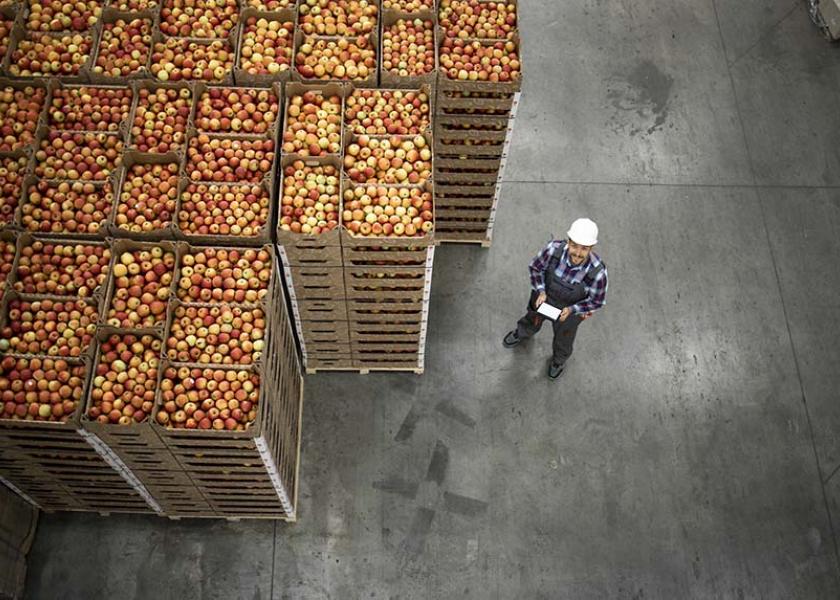Turning tech investments into a competitive advantage

Natural disasters like the recent Hurricane Ian, cyber hacking threats from foreign and domestic foes as well as the crippling labor shortage are just a few of the reasons fresh produce companies should invest in technology, says Patrick Day, director of client strategy for ZAG Technical Services, a San Jose, Calif.-based managed information technology and security solutions provider.
But while many companies have traditionally perceived technology as an expense — in the same way they view the water, garbage and power bill — in reality, technology can provide a powerful competitive advantage, Day told The Packer.

“One of the challenges we face when we work with clients is getting them to shift their mindset around technology as a cost center versus a competitive advantage,” said Day, who as a former IT director for companies big and small, has been on both sides of the technology investment table.
For produce companies considering an investment in tech, Day says to start by asking some of the following questions to determine what goals the company hopes to achieve, while also prioritizing from a budget and implementation standpoint.
- Are you concerned about security?
- Are you trying to solve a problem?
- Are you being crushed under the weight of massive technical debt or a digital transformation that went awry?
- Are you interested in automation to solve a problem related to labor shortages?
- Are you venturing into a new area of business that needs to scale?
Related: Is your produce business prepared for a cybersecurity attack?
“We like to say that every company is a technology company,” said Day, who adds that security is an obvious reason to invest in technology “because it's such a big topic right now, with so much potential risk involved.”
Security as a strategic advantage
Earlier this month, a cyberattack downed the websites of some U.S. airports, including those in Atlanta, New York and Los Angeles. The attacks were reportedly carried out by a group of pro-Russian hackers known as Killnet.
“The particular threat from Russia, like China, has always been there,” says Day. We've seen it elevated since the conflict [in Ukraine] started. And we know that the criminals are coming for the food supply, and they're also coming for infrastructure, like water districts and so on.”
ZAG sees cybersecurity as a strategic advantage when companies are more prepared than their competitors.
“Security is the undercurrent in everything that we do — every conversation we have, every solution we deploy has some sort of security element to it,” Day said. “Our owner, who is a big football fan, often says, ‘defense wins championships.’ We've seen firsthand that a strong defensive security posture can be a competitive advantage.”
Day encourages companies to have the important internal conversation around how the business would weather an attack. Ask, “how do we recover and continue to operate the business when that fateful day comes?” Companies should also consider starting a security posture review and developing an incident response plan, he added.
“It's an internal initiative that every company should undertake, which starts with a review of where your vulnerabilities are. It's like, when you go buy a house, you're going to get an inspection done, and they're going to list for you all the things that potentially are problems — from termites to mold to cracks in a wall,” Day explained.
Be prepared
Tech solutions are also critical in preparing for everything from natural disasters, like the recent Hurricane Ian, to the wildfires in the West, says ZAG.
“Incident response is another piece of the puzzle that that ZAG helps with,” says Day. While no one can fully prepare for a natural disaster, you have to be ready for whatever is thrown at you.”
Even something as simple as an electrical outage in a processing facility can be detrimental to business, says Day, if you don’t have a response plan in place.
ZAG takes its clients through what it calls “tabletop exercises,” which allow companies to practice, in mock exercises, how to manage crises.
“If a competitor goes down because they didn't have those protections in place and you have the ability to step in and fill the void for product, [it’s an advantage],” said Jenna Hardie, marketing communications manager for ZAG. “We've seen this happen, where someone's systems went down, and they could not ship their product. The customer still needs the product to fulfill their own obligations to their customers, whether they're a grocery store, restaurant or foodservice operation. We’ve also seen that customer go somewhere else to find the product because their vendor was down.”
When your company is still up and running, then people know that they can come to you if they are unable to source the produce they need elsewhere, Hardie added.
Better data, stronger labor force
But the need for technology is bigger than managing and recovering from incidents, says Day.
“We have clients right now that are going through transformations around analytics because they want better data in the hands of their employees so that they're more productive. The technology required really does depend on what the company is trying to achieve relative to business outcomes.”
What are other reasons produce companies should plan, prepare and protect their businesses with technology?
“The more stable the enterprise is, the more productive employees are to produce more and grow the company,” said Day.
Many companies are also challenged by labor shortages, which is another area in which technology can provide an advantage.
Say your business is having trouble hiring and retaining employees, said Day. “Maybe you invest in robotic process automation, where you take the more mundane tasks, like data entry, and you automate it to make the business more productive without adding extra headcount,” he continued.
Companies that embrace technology and use it to secure, grow and stabilize their infrastructure, as well as solve problems in their businesses, will come out ahead, said Day.







